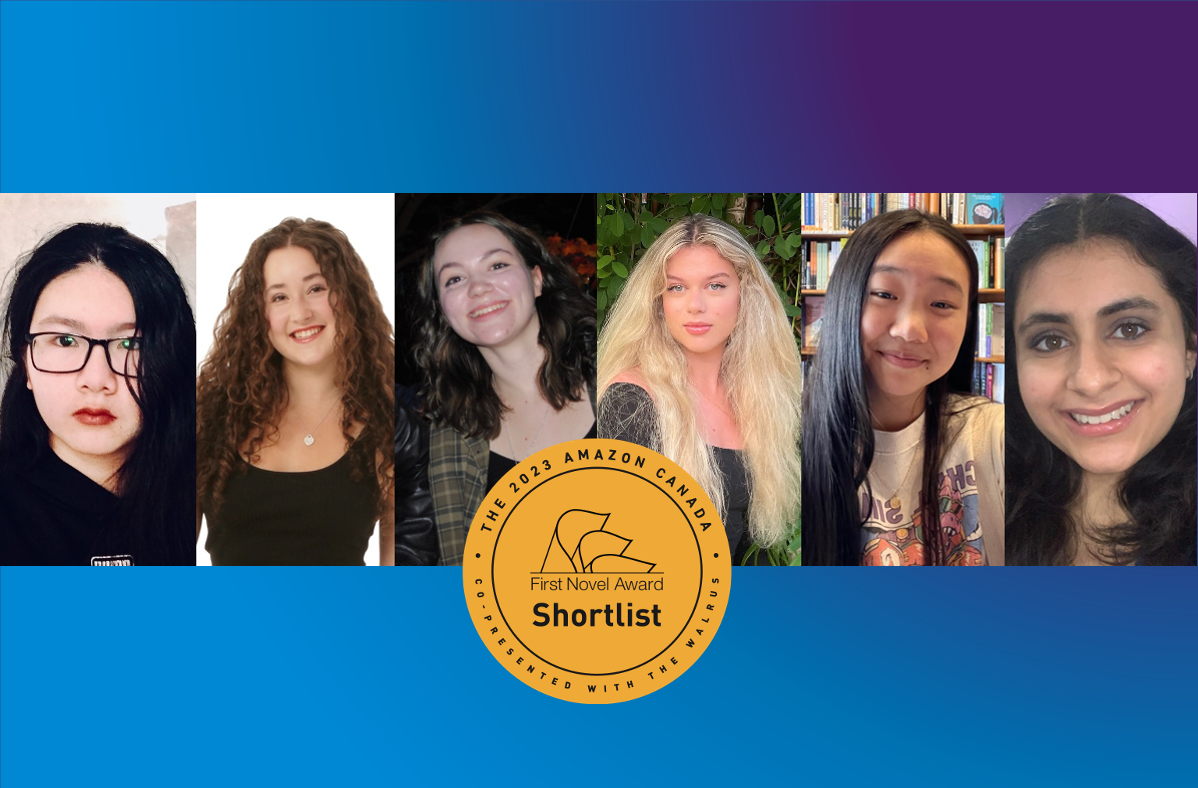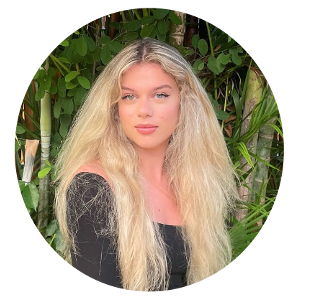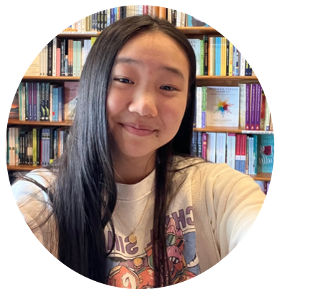
T
he act of putting one’s nose in a book is universally regarded as a “do not disturb” sign. But in writing a story, however short, authors seem to be committing to a certain amount of rumination—an analysis of life’s greatest mysteries in an easily digestible format.The nominees for this year’s Youth Short Story category of the Amazon Canada First Novel Award similarly managed to find the macro in the micro: a stray-cat romance becomes a metaphor for impermanence; an evening binge-watch becomes a symbol on the anesthetizing effect of mass media; and a family boat, engulfed in flames, becomes the embodiment of our tendency to laugh our way through morbid moments. A lot can be processed in precious little word counts. Here, the nominees explain what they learned about life while writing their miniature meditations.

“When I wrote “Censure,” there were no truths I wanted to confront, no themes I wanted to share. I simply gathered the irritation that had accumulated in my heart—irritation born from the anti-Asian racism that has been on the rise since the COVID-19 pandemic. I used it to create a story. I didn’t want the irritation to fester, so I got rid of it. I took the ugliness of past experiences and turned it into something I could read without the feelings prickling in my chest. There’s not really a big idea or a universal truth here—just one personal perspective, a small sliver of history among infinite others. It’s up to the reader to decide what they want to take away from a story, after all.”
– Anna Pan, “Censure”

“I learned that wonderful things happen, and then they’re over. Not every little thing becomes something bigger, even if it would have been nice. Life-changing moments are happening all around us, all the time, in places that we, as humans, would never think to look for them. They’re as enchanting and marvellous as they are spontaneous and fleeting. They’re here, and then they’re gone. We never know how important these moments were until they’re long behind us. We’ll never know what might have happened had things played out just a little bit differently—if we’d said something different, or stayed in that place just a little bit longer. Yet even in our powerlessness to change and understand them, these moments make our lives so very special.”
– Clover Long, “The Wild Ones”

“I wrote “Local Shopper” after I realized the extent to which people—including me—rely on escapism to avoid their lives. Whether through social media or television, it seems to affect everyone in some way or other. Binge-watching and endless scrolling appear harmless and are often labelled as methods of relaxation. In reality, they’re ways for people to avoid their thoughts and feelings. As people are further immersed in fictional realities, our inner turbulence becomes more nightmarish and difficult to face. We develop an attachment to what is not real, in a futile attempt to convince ourselves that the temporary sense of comfort might finally become permanent.”
– Danica Popovic, “Local Shopper”

“I wanted “Gone Fishing” to evoke a visceral experience within the reader, one that would make use of their five senses. I wanted them to laugh at the dissonance, to roll their eyes at the characters’ reckless decisions, and to find pleasure in the absurdity of an objectively disastrous event. Everything is funny as long as it’s happening to someone else, so I made sure I could simultaneously create a palpable first-person narrative, while also protecting the reader. I kept them at arm’s length from any real moral or physical dilemmas. Writing this story was also an opportunity for me to stop thinking so damn much. I wasn’t focused on delivering a lesson. Instead, I wrote it as a tongue-in-cheek tribute to how we sometimes take life so seriously. Perhaps the big truth that I grappled with while writing this story was that humour is the antithesis of hardship.”
– Anneka Tracey, “Gone Fishing”

“Through the prism of music, I was able to unravel the complex relationship between a first-generation child and an immigrant mother, exploring the multifaceted nature of love in immigrant families. This piece allowed me to realize how different love can be across different generations, cultures, and backgrounds, with a diasporic mother-daughter relationship being a microcosm of this larger truth. It conveys the intricacy of love within the contexts of cultural assimilation. By specifically using piano as both a bonding and snapping point in a family, I was able to illuminate a narrative that is often underrepresented in literature while uncovering truths about love. I’ve realized how the landscape of familial ties and love is a collection of different colors blending together, of the delicate intertwining of both challenges and understanding.”
– Maggie Yang, “Nocturne in C# Minor”

“I wanted to explore the concept of dealing with regret, especially one that consumes you. “Watercoloured Hands” revolves around relationships, and at the core of it, how one deals with their impermanence. In writing this short story, I was able to explore happiness in the face of terrible, inexplicable grief. Ultimately, life is not about what you do or do not deserve—it is about taking responsibility over your own choices and dealing with any fallout in the best way you can. The universe is not indifferent but empathetic, and what is meant for you will come to be. In shifting your perspective, you are open to greater understanding.”
– Ria Baxi, “Watercoloured Hands”







